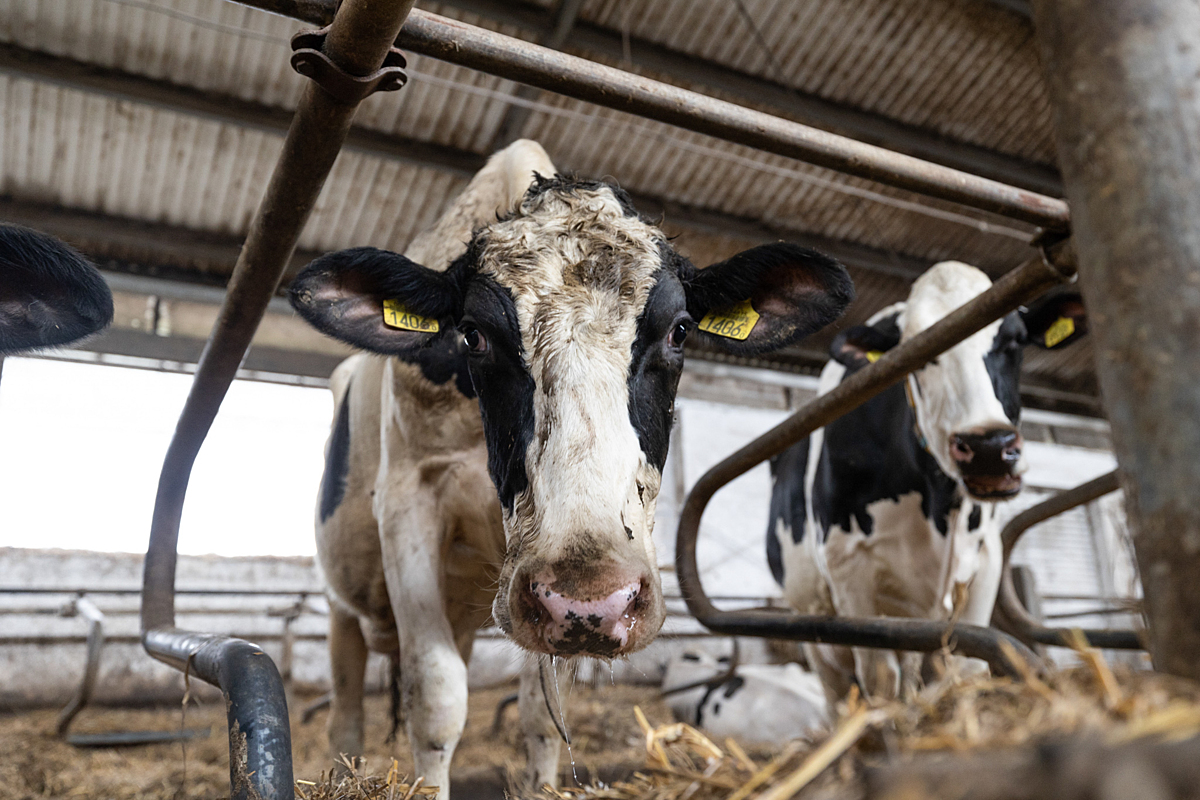Going vegan for the animals
Going vegan is one of the best things you can do to help stop animal cruelty. By refusing to pay for animal products, you reduce the demand for them, which ensures fewer animals are bred to suffer and die on farms and in slaughterhouses.

Each year in the UK, an estimated 1.2 billion land animals are killed for food. The vast majority (around 1 billion) are confined to factory farms, which are a far cry from the fairytale farmyard scene that we’ve been raised to believe in. In these highly intensive systems, animals are reduced to mere units of production: they are bred to produce meat, eggs and milk as quickly and as cheaply as possible and given the bare minimum they need to survive.
With more vegan options than ever before, now is the time to ask ourselves: do we really want to contribute to the terror of animal farming?
But what about free-range and organic?
Here’s the catch:
Whether they are reared in factory farms or under so-called ‘higher welfare’ schemes (like organic, free-range, outdoor-bred, grass-fed, and so on) all farmed animals suffer for the food on our plates. They will all be denied the opportunity to perform natural behaviours, such as socialising, playing, and raising their babies; they will all be subjected to painful mutilations, confined to barren, unnatural conditions and, ultimately, slaughtered at a fraction of their natural lifespan.
Labels like ‘free range’ and ‘organic’ only serve to make consumers feel better about eating animals. Animal Aid, and other organisations, have conducted investigations into all sorts of farms, including those considered to be ‘free-range’ and organic and we have found similar shocking scenes that we have found in intensive farms.
For example, this ‘free range’ egg farm:
We have also conducted investigations in a range of British slaughterhouses – from conventional to non-stun, from ‘high welfare’ to certified organic – and found illegal abuse and cruelty to be commonplace.
Can I just stop eating meat?
Both the egg and dairy industries are horrifically cruel to animals, depriving them of all natural behaviours and instincts like exploring, foraging, socialising and raising their babies. All will be confined to unnatural and unsanitary conditions where disease outbreaks are common, and all will be sent to slaughter at a fraction of their natural lifespan simply for being considered ‘uneconomical’.
Egg and dairy production strips hens and cows of their inherent value as individuals, reducing them to mere units of production.
Read more about the dairy industry, including our new campaignIf you care about animals, being vegan is the best thing you can do!
Whether they are a dog who you share your home with, a pig or a chicken on a factory farm, or a fish being torn from the ocean, all animals deserve to live free from harm and suffering. By going vegan you will be doing the single, most effective thing you can do to say ‘NO’ to animal cruelty.